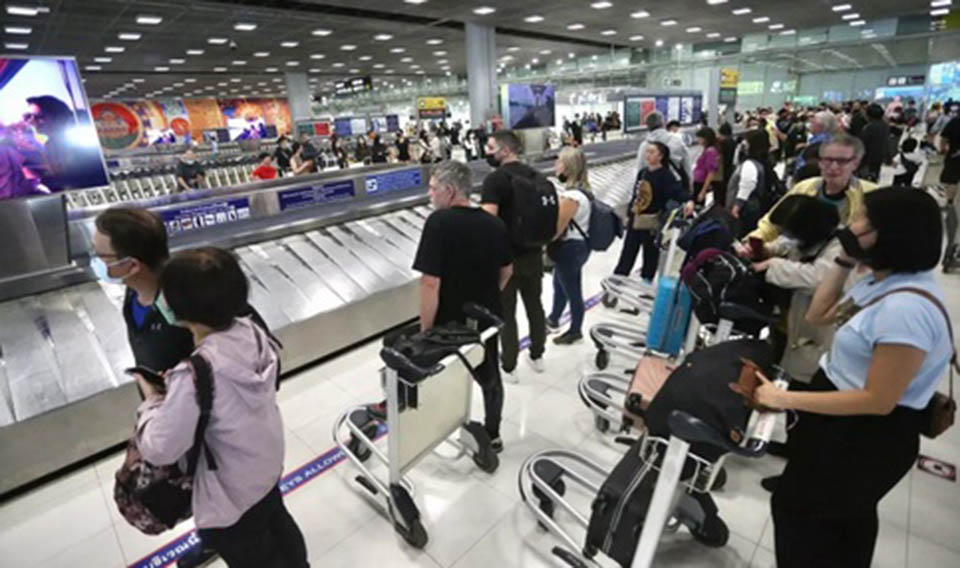
Nationals from 93 countries – including Brits, EU citizens, Americans, Australians – will now receive a no-charge, 60 days visa-exempt stamp on entering as opposed to the current 30 days. Government spokesman Chai Wacharonke did not go into detail, but they presumably can then re-enter Thailand by air, land (border runs) or sea to receive a further two months visa-free. The new rules will also apply to Indians and Chinese as well as dozens of other countries including Morocco and Albania.
The new 60 day visa free policy has several consequences. It will no longer be necessary for anyone from the 93 countries to seek a month’s extension after the first 30 days from local immigration offices which will thus lose the 1,900 baht (around US$50) fee currently imposed. The absence of these nationals from immigration offices will certainly reduce the queues, although there is still the requirement to report their Thai address within a day or two of arrival either in person or via their hotel registration.
There are also implications for Thai Revenue’s policy “clarification” to tax the overseas income of tax residents – namely anyone staying in the country more than 180 days in a calendar year. Using a combination of the new 60 days rule, plus a couple of border runs, it would easily be possible for individuals to clock up more than six month residence without having any visa at all. Thus the idea that Thai Revenue can identify potential tax residents by the type of visa they have is faulty. Enforcement of the new Revenue regulations is still unclear to say the least.
In other moves, the number of non-immigrant visas will be reduced by creating a new DTV (Destination Thailand Visa) which will now cover remote workers, sportsmen, musicians and medical tourists amongst others. The DTV will allow a stay of up to 180 days plus an extension on payment of a further fee for a period of five years. The government spokesman did not provide all the details, but there is provision for families to join the visa holder. The cost of the visa appears to be 10,000 baht per 180 days with a 500,000 baht bond lodged in a local bank.
In a separate development from September 1, the minimum medical insurance rule for “0/A” visa retirees – those who initially obtained that visa from a Thai embassy – will return to 400,000 baht inpatient and 40,000 baht outpatient cover to replace the current 3 million baht plus or US$100,000. There is no indication that a cash substitute for insurance will be permitted, nor any sign yet that the current insurance exemption for retirees extending an “0” visa will end. Overall, the new visa policy according to the Cabinet is to raise sorely-needed revenue from tourists and expats by making life easier for the end users. The aim is to welcome 80 million overseas visitors by 2027, more than double the current total.








